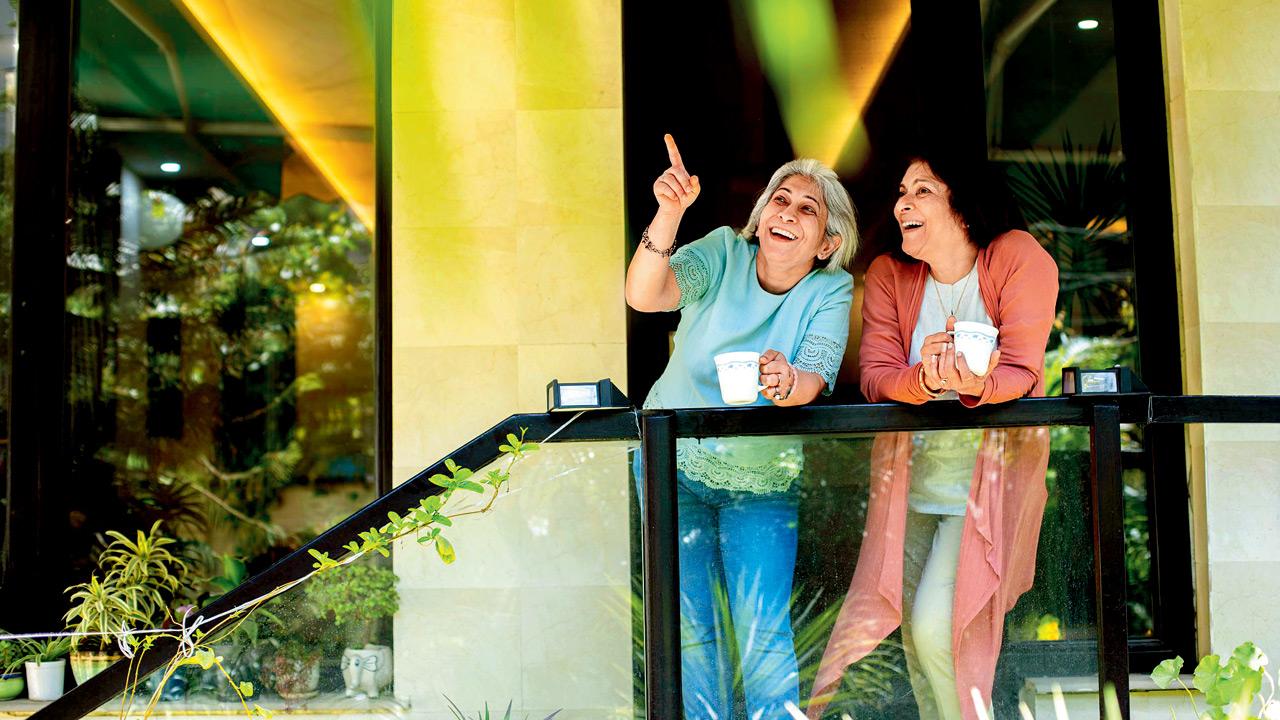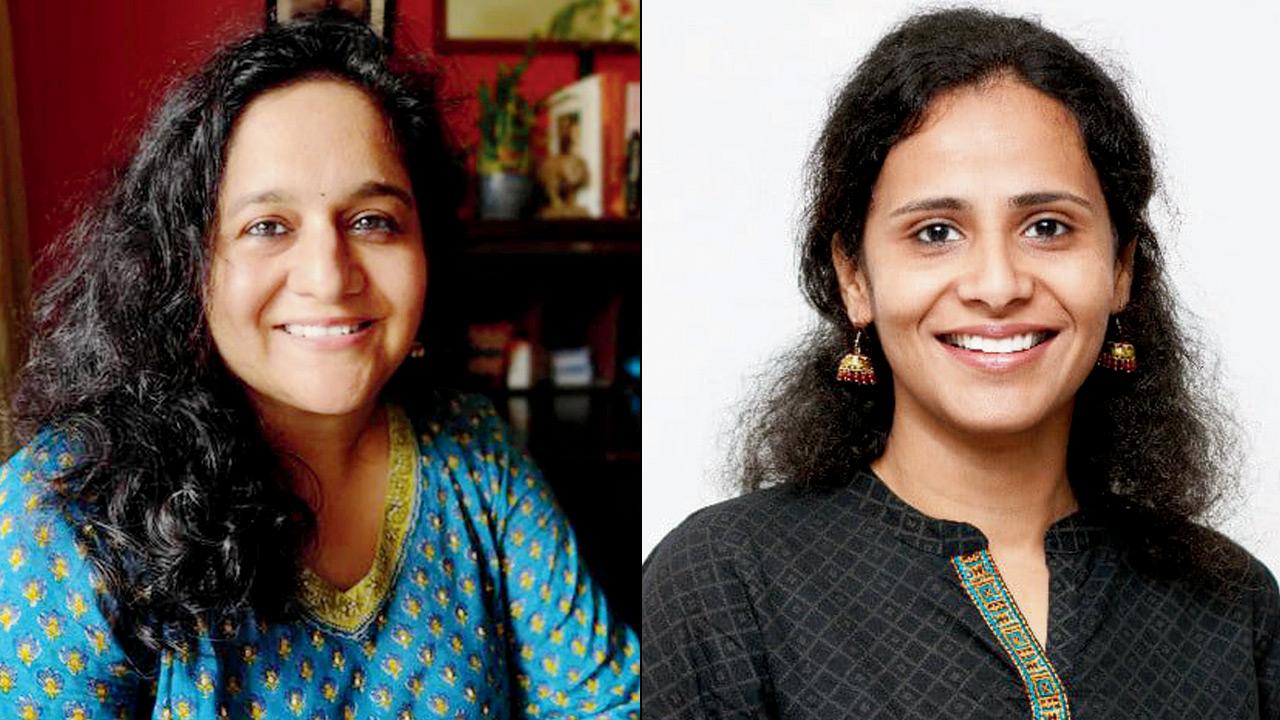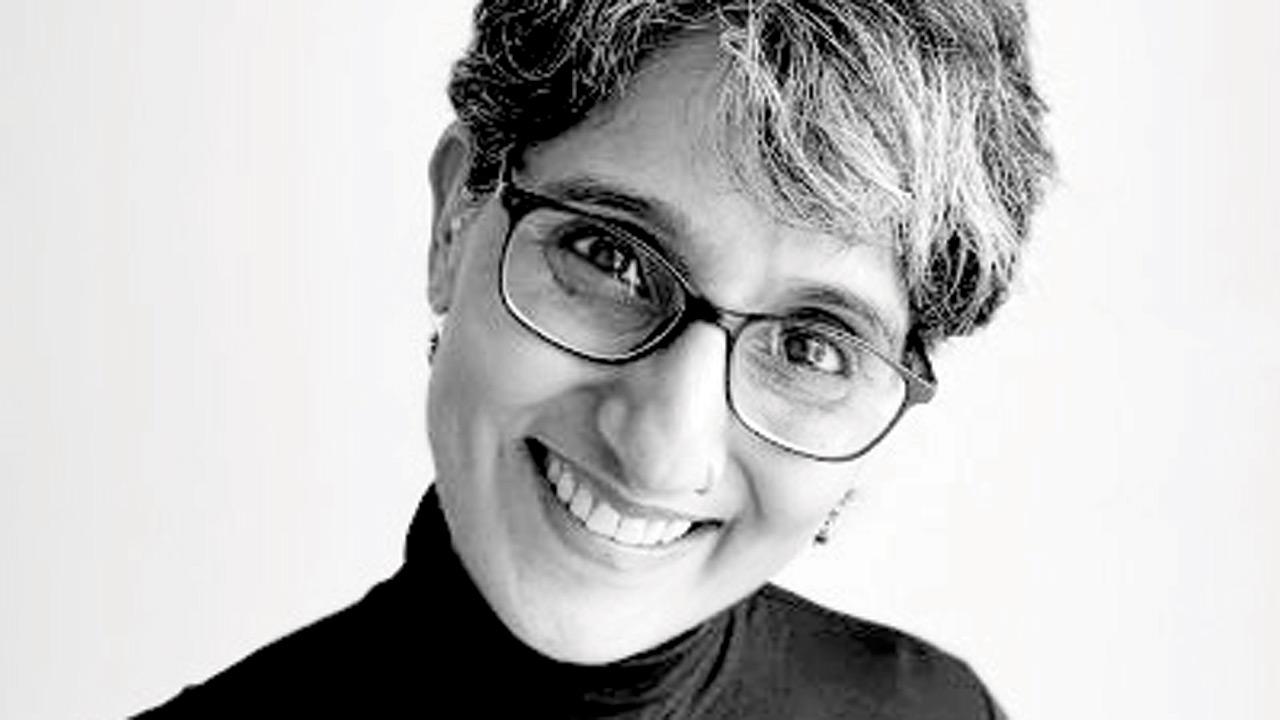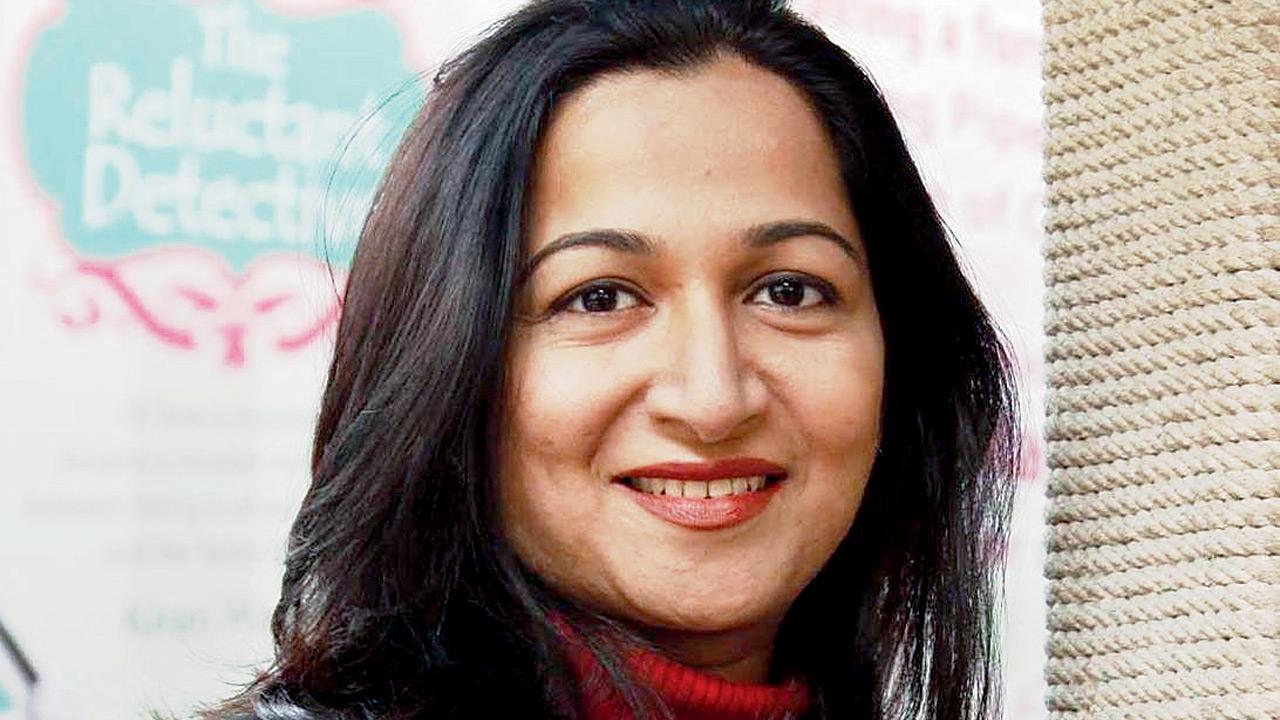After generations of suffering menopause alone in silence, women are now shattering the stigma around it. That means helping each other come to grips with this life change through online and offline communities

Being heard with empathy is the beginning of the attitudinal change towards menopause. REPRESENTATIONAL PIC/istock
Some years ago, writer and podcaster Kiran Manral asked a seemingly simple question on social media: “Women over 45, how difficult or easy has menopause been for you? #SeriousQuestion” The answers are still coming in. Manral, 54, received responses that told of the silent — and not-so-silent — difficulties that women go through, and are expected to just take in their stride.
Author Aparna Karthikeyan, for instance, replied, “Please find attached my PhD thesis on Perimenopause and the Unbearable Heaviness of Existing.” Karthikeyan, 51, tells Sunday mid-day, “It really helped that I spoke to my women friends, all of us around the same age range, and we found that our bodies are doing this to all of us. Kind of pinning us to the wall and throwing darts at us.”
She adds, “It is very validating talking to other women, to know that you’re not imagining this and you’re not the only person going through it.” Manral agrees: “We’ve had this omerta about women’s issues for so long; our grandmothers and mothers went through it silently and we are the first generation that’s talking about it.”

Aparna Karthikeyan and Swathi Kulkarni
With menopause recognised as a valid and sometimes serious medical condition, isn’t it time organisations also do the same? We’ve heard enough about working women literally suffering during menopause. X user Anuj Krishnamoorthy, responding to Manral’s tweet, said, “I have seen my mother suffer. She had to take the Mumbai train up and down to work and she would come home and start crying unbearably with the heat. We did not have air-conditioning and with two teenage sons she didn’t have anyone to talk about her perils either.”
Dr Sukhpreet Patel, 53, a women’s health advocate and founder of MenopauseWize, a platform built to educate, empower, and support women through midlife transitions and beyond, says acknowledgement is the foundation. “Simply validating that these are real, significant challenges women face can have a profound impact. Women often spend years second-guessing themselves, doubting whether what they are experiencing is real or just something to be endured quietly. In this context, a workplace that listens and acknowledges their struggles without judgment can provide a tremendous sense of relief and legitimacy. That first moment of being heard often sets the tone for trust and openness going forward.”
 Dr Sukhpreet Patel
Dr Sukhpreet Patel
This has to be backed up with responsiveness, Dr Patel adds. “That is, the ability of the organisation to translate that empathy into action — having someone within the organisation who is educated and dedicated to these issues, whom women can turn to for help, and also making adjustments that can improve a woman’s ability to function at her best.”
For example, she says, a company can adjust schedules for women in perimenopause who are struggling with disrupted sleep, offer lighter and more breathable uniforms to ease discomfort, or ensure that ambient room temperatures are comfortable for women dealing with hot flashes.
“We just want the understanding that we are changing. It is a transition as important as puberty,” says Manral. Dr Patel will be talking about menopause at work, and how organisations can meaningfully support employees through this journey, with Nisaba Godrej, executive chairperson of Godrej Consumer Products, at an event organised by Godrej DEi Lab tomorrow.
Karthikeyan says, “I’ve seen my mother and grandmothers go through stuff but I think they did it very quietly; women are never encouraged to call attention to themselves or make a fuss about things, so they invisibilised the whole thing. Except for heavy bleeding which people talk about, there’s very little spoken about the rest of it.”

Kiran Manral
Which is probably why Manral’s tweet gained so much traction — women were just relieved to be able to say that yes, they too were suffering, and to be able to find others experiencing the same issues. Simply talking can lead to wider solutions, too, as happened with Swathi Kulkarni, co-founder and CEO of Elda Health. Elda emerged from a WhatsApp group that was formed about five to six years ago, says Kulkarni. “It was a group of mainly perimenopausal women, from all over the country, and it grew to include doctors as well.”
And if it seems that talk can only go so far, Kulkarni cites research showing that in cultures where ageing is related to wisdom, women were actually facing less menopause symptoms. “But in cultures where ageing is related to lack of fertility, youth, and beauty, women were facing a lot of symptoms. The way the woman is made to feel at home at work and in the country at large also determines her physical and mental health.”
Rachel Kurien started the WhatsApp group Menopausal Mates three years ago, when she was undergoing perimenopause and struggling to get information. She says, “It started as a peer-to-peer support group, a safe space to share, vent, laugh, reach out for help when we’re having a really bad day; as well as share information on what helps with physical symptoms, etc. As we evolved we started to attract professionals, many of whom were also going through menopause themselves.
When it comes to translating talk into action, however, there is a long way to go. Dr Patel says, “[Recognising] menopause in the workplace is still in its early days, but organisations are beginning to realise the hidden losses it creates in actual dollars. So far, most organisations I have seen approach this with talks, awareness sessions, or by adding some educational material to their intranet or website. Frankly, that is just not enough. For a woman struggling with brain fog and exhaustion, asking her to read more and figure it all out herself feels almost cruel. What women need is proactive, embedded support with thoughtful policies, trained managers, and small but meaningful accommodations that actually make it easier for her to keep performing.”
This is necessary because severe menopause symptoms can be crippling. As Karthikeyan says, “I felt like a victim, like everybody was against me. Actually it was one of the best periods of my life; personally, professionally, everything; yet I was depressed and felt miserable, as if my whole world was collapsing around me.”
Family support is obviously crucial, but Karthikeyan says the general attitude towards a menopausal woman being “lesser” because she stops being fertile has to be “thrown out of the window”. Also, she says, organisations need to train their human resource departments, and sensitise men who work with women. “This should be discussed more widely and frequently.” As Kulkarni says, “Just knowing that somebody else is also going through this makes it not so lonely a journey.”
Support systems
>> Talk to healthcare practitioners as well as thousands of other women, about menopause symptoms and solutions.
To join: eldahealth.com/our-app
>> Menopausal Mates, a WhatsApp group where about 1000 women have found answers to their questions about menopause.
To join: shorturl.at/04Oei
>> Information on menopause and community discussions for awareness and support.
To join: menopausewize.com/menopause-support-group-experts
 Subscribe today by clicking the link and stay updated with the latest news!" Click here!
Subscribe today by clicking the link and stay updated with the latest news!" Click here!










